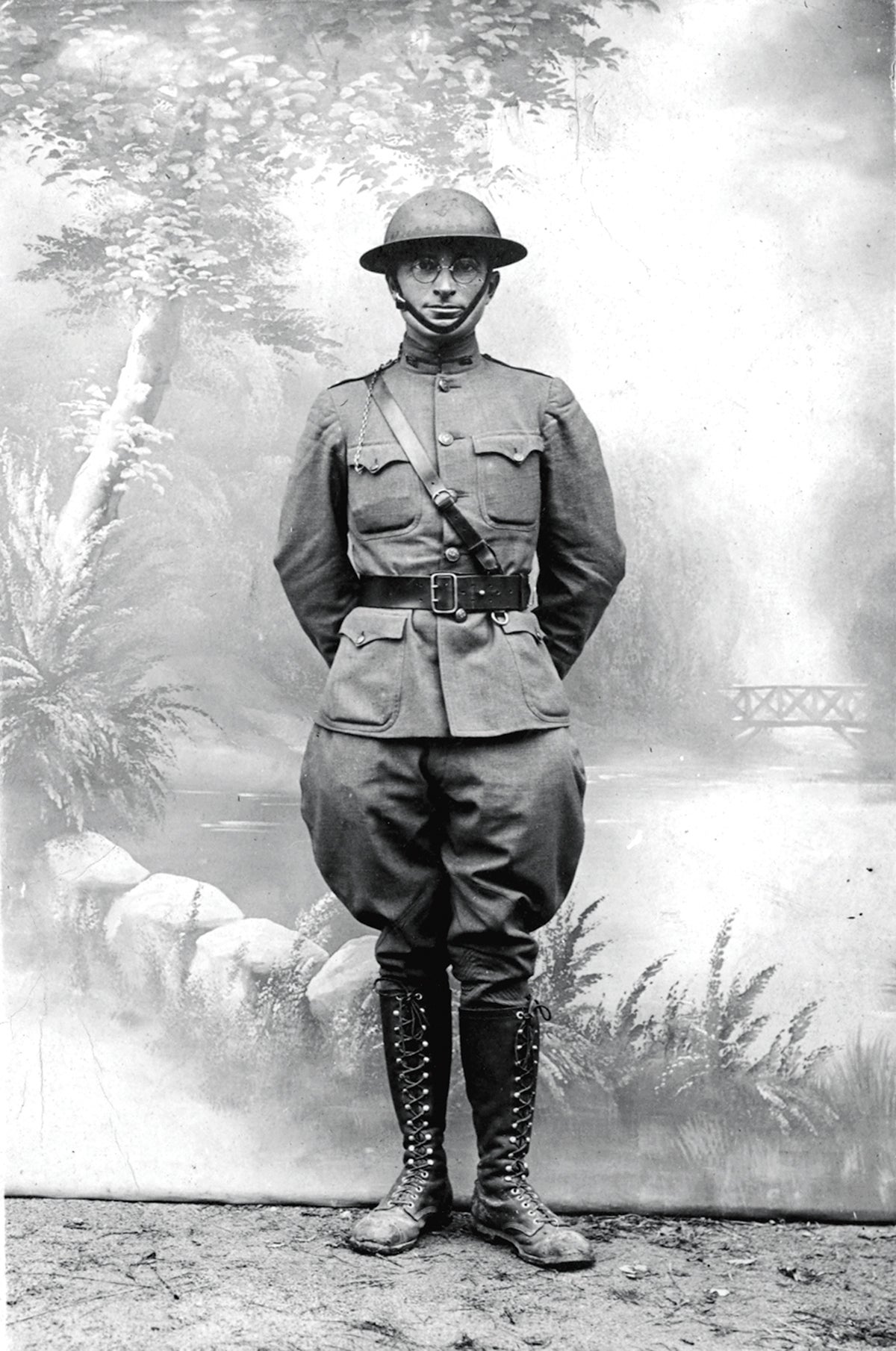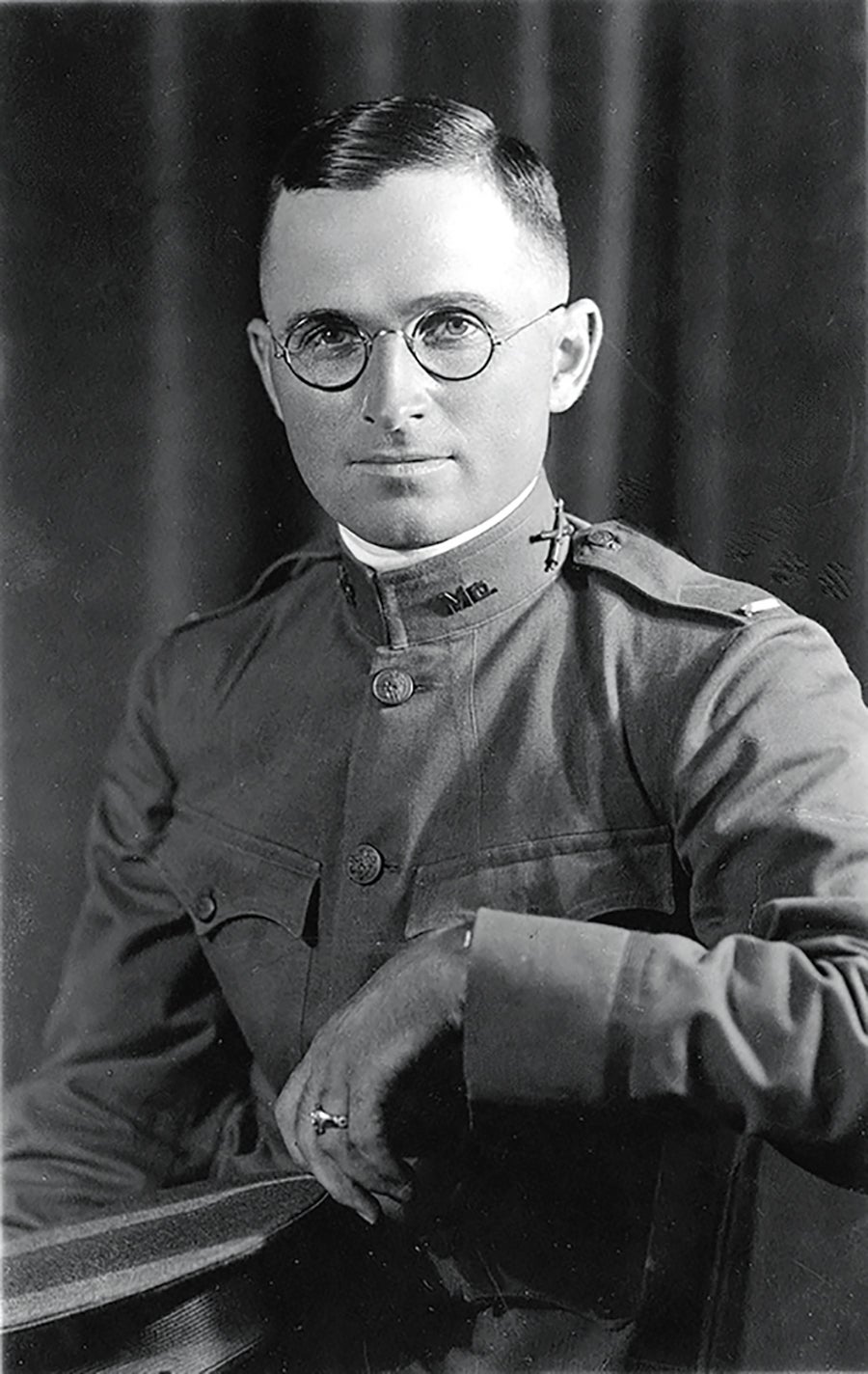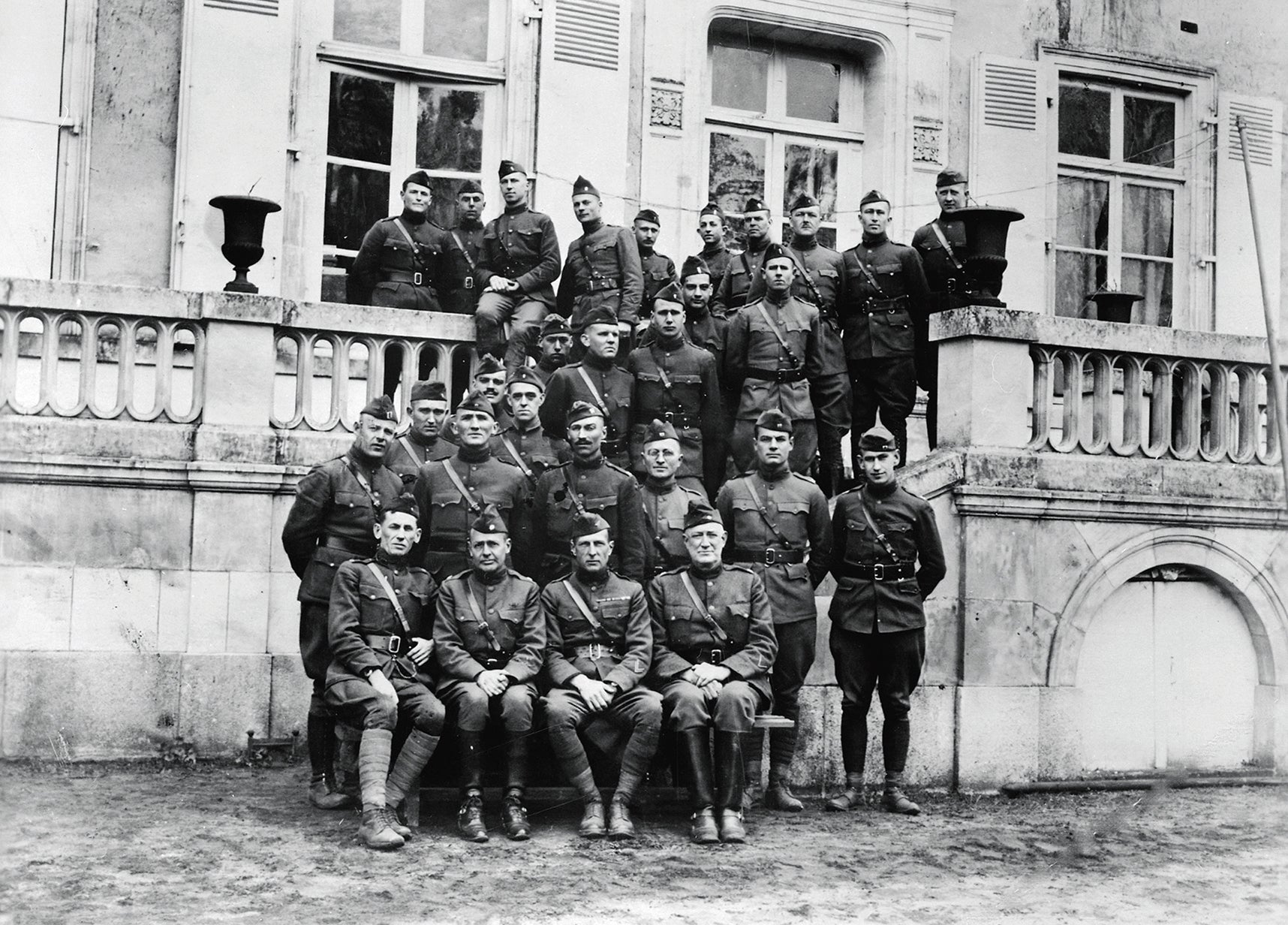He was a decisive, plain-spoken leader who became the 33rd president of the United States. But more than two decades before he became president, Harry Truman served as an artillery officer in World War I. His time in uniform tested his courage and core values, and transformed him from a struggling Missouri farmer into a decisive leader. Leadership skills forged in that conflict helped propel him into a career of public service, culminating in the highest office in the land.
As a young man, the studious Truman wanted to attend college but could not afford to do so. An alternative was the free education offered by the U.S. Military Academy at West Point, New York, and he applied for an appointment. Successfully passing the written test, he failed the physical exam because of poor eyesight.
He later found an outlet for his military interest by enlisting in Light Battery B of the Missouri National Guard as a 21-year-old in 1905. To pass the physical exam, he memorized the eye chart. Truman served two three-year enlistments before resigning as a corporal in 1911 because of pressures associated with running the family farm, a job he had held since the retirement of his father in 1906.

Guard Reenlistment
Truman continued to farm until the U.S. entered World War I on April 6, 1917. At age 33, he was too old for the draft and could have avoided service. Instead, he reenlisted in the Missouri National Guard on June 22, 1917.
During this period, it was common for groups of local men to enlist and serve together. The unit in which Truman enlisted was made up of locals from Kansas City, Missouri, and surrounding areas. During this era, units elected their officers. Truman had not expected to be an officer. As he recalled, “I had hoped I might be a section sergeant. … I had not hoped for a commission.” Nevertheless, he was elected a first lieutenant in Battery F of the 2nd Missouri Field Artillery.
On Aug. 5, 1917, the Missouri unit was federalized and became the 129th Field Artillery of the 35th Division. In September, the unit moved to Camp Doniphan at Fort Sill, Oklahoma, for advanced training. Truman apparently performed well; his battery commander gave him such a glowing efficiency report “that the [commanding officer] sent it back with the comment, ‘No man can be that good,’ ” according to Truman’s memoirs.

‘Heroes or Corpses’
In February 1918, Truman, along with 10 other officers and 100 enlisted men, constituted an advance party detailed for training in France. They traveled by train to Camp Mer-ritt, New Jersey. Late the next month, Truman boarded a troop transport for Brest, France. “There we were watching New York’s skyline diminish, and wondering if we’d be heroes or corpses,” he recalled.
In France, Truman attended the elite 2nd Corps Field Artillery School, replete with extensive intellectual and physical demands. He graduated in June 1918 after he was promoted to captain, initially serving as adjutant of the 129th. Much to his surprise, he was later given command of Battery D, a rude and crude bunch known unofficially as “Dizzy D.”
At this point, Truman’s leadership skills first came into play. Various disparaging adjectives have been used to describe the group of men he commanded. On his first day, admittedly nervous, he faced 200 hungover and rowdy young men. Disdainful of authority, the group was undisciplined and proud of its reputation. Mostly Irish Catholics who had known each other since high school, many of the men had been confined to quarters for drunk and disorderly behavior. They were not initially impressed with Truman, betting that he would not last 90 days in the job. By way of welcome, the men staged a drunken brawl that first night.
As one former member of the unit recalled, “We were a pretty rough bunch of boys; anyway, we thought we were. We had already got rid of four commanding officers when Harry came along. He looked like a sitting duck to us.”

Restoring Discipline
Battery D was in for a rude awakening the next morning. A typed note was pinned to the bulletin board. Half the NCOs and most of the privates first class had been demoted. Truman told the remaining NCOs, “I didn’t come here to get along with you. You’ve got to get along with me. If there are any of you who can’t, speak up now, and I’ll bust you right back now.” The men were stunned. They had a different kind of leader, one they could not intimidate as they had previous battery commanders.
Truman demanded discipline. But a surge in punishment was accompanied by an increase in rewards. He was quick to promote high performers. It became apparent that Truman truly cared about his men. He improved their living conditions and food, and insisted they write letters home.
His leadership methods worked. By the end of the summer of 1918, Truman had molded Battery D into a disciplined military unit. The battery won regimental records for firing accuracy and speed. The men’s respect for Truman grew. They now saw him as an effective leader. As historian David McCullough noted in his 1992 Pulitzer Prize-winning book, Truman, he became “a model officer and extremely popular.”

Courage Under Fire
Truman’s first combat action came in August 1918, and it further tested his courage and leadership. The battery trudged through the mud of the Vosges Mountains in Alsace-Lorraine, France, set up on the reverse slope of a hill and began firing. Once German artillery started lobbing rounds back toward them, many of the men—exposed to enemy fire for the first time—became frightened. Led by the first sergeant, some of them began to flee.
Truman sprang into action. “I got up and called them everything I knew,” cursing them in language they understood. “With his blistering verbal barrage and the vivid example of his own fierce courage under fire,” he finally got the situation under control, according to the book Truman. The artillerymen returned to their guns and continued firing, and Truman won additional respect.
In September 1918, the 129th Field Artillery slogged 100 miles through rain and muddy back roads with wagons full of supplies and ammunition to the new American sector in France’s Argonne Forest. Battery D was ordered to provide fire support to Lt. Col. George Patton Jr.’s tanks. At the start of the Meuse-Argonne Offensive, the battery was credited with destroying two enemy batteries.
It was during this offensive that Truman made a quick decision and, as a result, was threatened with court-martial. One night, as the battery continued firing, an American reconnaissance aircraft flew overhead and dropped a flare near the unit’s flank. Using his field glasses, Truman spotted a German battery setting up a short distance—little more than rifle range—from his battery. The Germans were positioned to fire on maneuvering American forces of the 28th Division.
On his own initiative, Truman directed Battery D to fire on the German guns. They did so and destroyed the battery. But the German battery was not in Truman’s sector of fire, and he had defied orders by taking this action. His regimental commander, Col. Karl Klemm, threatened to court-martial him, though there is no record of this happening. Klemm may have weighed the number of lives that Truman saved against his defiance of orders. Later that day, orders restricting artillery units to their own sectors of fire were rescinded.
During the final weeks of the war, the 129th moved into position at Verdun, France. They fired their last rounds 15 minutes before the armistice went into effect. Battery D had fired more than 10,000 rounds during the war.

‘A Good Officer’
The war ended on Nov. 11, 1918. Truman had performed well. Under his command, Battery D did not lose a man in combat. A former member of the unit summed up Truman: “He was tough, but he was fair; he was a good officer,” according to Merle Miller’s 1974 book, Plain Speaking: An Oral Biography of Harry S. Truman. Writing about her father, Margaret Truman stated, “He came out of the army convinced that if he could lead these wild men, he could lead anyone.”
Truman and the men of the 129th headed home on April 9, 1919. That the members of Battery D held him in high esteem is underscored by the loving cup they purchased for him. It was inscribed as follows: “Presented by Members of Battery D in appreciation of his justice, ability and leadership.”
Not only did the war hone Truman’s leadership skills; it also helped him launch a highly successful political career. A fortunate occurrence paved the way for a life in politics. While in the National Guard, Truman formed a friendship with Lt. Jim Pendergast, nephew of Tom Pendergast, the political “boss” of Truman’s home county. This ultimately led to the “Pendergast Machine” backing Truman for his first elective position as a judge in Jackson County, Missouri, as well as in subsequent elections.
Members of Battery D, along with other veterans of the 129th, formed the basis of his support for his first run for public office, and that continued throughout his career. At Truman’s 1949 inaugural parade, 79 of the surviving 138 members of Battery D marched with him.
* * *
Lt. Col. Wayne Curtis, U.S. Army retired, is a former Troy University, Alabama, business school dean. He holds a doctorate in economics from Mississippi State University.

